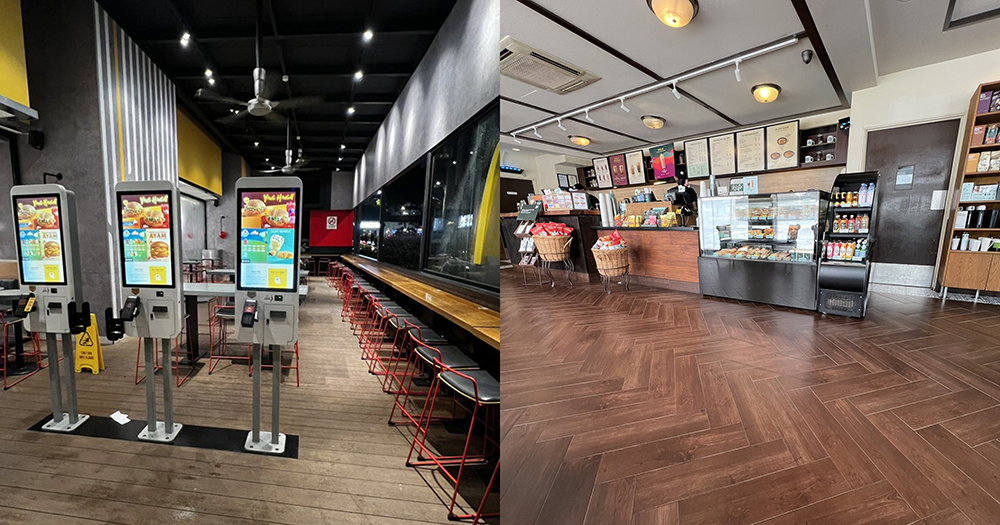The food and beverage businesses of multiple Malaysian franchises have suffered a blow as a result of boycotts by Malaysian consumers, over alleged links to the ongoing Israel-Hamas war, Malaysian media reported.
According to the The News Straits Times (NST), there has been a significant decline in customers and revenue for multiple "well-known" establishments.
Companies that have been targeted for boycott by Malaysians include KFC, McDonald's and Starbucks.
McDonald's Malaysia not linked to McDonald's Israel
In the case of McDonald's Malaysia, it shared a statement from Gerbang Alaf Restaurants Sdn Bhd, its local operating company on Oct. 15, in reference to discussions on Malaysian social media about a decision by McDonald's Israel to donate free meals to members of the Israeli Defence Forces (IDF).
The actions by McDonald's Israel had resulted in calls for a boycott of McDonald's in Malaysia.
McDonald's Malaysia stressed that the actions are those of an "independent market", and "do not reflect the values and practices of McDonald's Malaysia."
Locals' jobs could be threatened as a result of the boycott
On Nov. 14, Malaysian Member of Parliament (MP) RSN Rayer highlighted that many workers in the companies being targeted for boycott are locals, The Star reported.
According to deputy minister Fuziah Salleh for Malaysia's Ministry of Domestic Trade and Cost of Living, a majority of foreign brands in Malaysia are owned by local companies, Bernama reported.
The president of the Malaysian Employers Federation, Syed Hussain Syed Husman, also said that prolonged boycotts could threaten the jobs of over 18,000 employees within the targeted businesses, Free Malaysia Today (FMT) reported.
Economist Nuradli Ridzwan Shah Mohd Dali, an associate professor from Universiti Sains Islam Malaysia (USIM), called on consumers to research the brands or companies they are boycotting to avoid "collateral damage", according to NST.
Nuradli also cautioned against accusing Malaysian-owned franchises of providing funding to Israel and urged a neutral stance to prevent negative repercussions.
He said, "It is understandable (to boycott) due to the solidarity (movement). But lumping together company 'A' in Malaysia and company 'B' in Israel as giving donations to the latter is a misconception."
Financial impact of Malaysia's boycott is minimal
A professor and economist at the Malaysia University of Science and Technology, Geoffrey Williams, said that international franchises are unlikely to be "fazed" as Malaysia only represents a small segment of their market.
"Instead, franchisees in Malaysia and their stakeholders, including employees, would suffer," he added.
Nusantara Academy Senior fellow Azmi Hassan also pointed out that the financial impact of a boycott by Malaysians is "minimal" due to the country's relatively small market size.
In addition, Malaysia's contribution to products supporting Israel is already "insignificant", unlike the U.S. or UK where direct Israeli products are more prevalent.
"In the case of Malaysia, there is no direct evidence of products produced in Israel being available in the market," he noted.
Brands like McDonald's are therefore affected at the local franchise level by such actions rather than at the level of the global headquarters.
Local products and businesses could benefit from a boycott
Nuradli added that a boycott could stimulate a growth in demand for local products and businesses however.
"There will always be alternatives to international products that consumers can choose. If you're used to buying burgers from fast-food joints, there are also street vendors using local ingredients," he said.
As for the decisions by consumers to boycott products associated with Israel, Fuziah said the government could not ban this as it is within the consumer's right to do so.
She added, "As a government, our position is to support Palestine. However, the interpretation whether to support, boycott or otherwise, that is up to the individual or the consumer."
Related stories:
Top left photo via @Faizal Hamssin/Twitter, right photo via @pelabursaham/Twitter
If you like what you read, follow us on Facebook, Instagram, Twitter and Telegram to get the latest updates.



